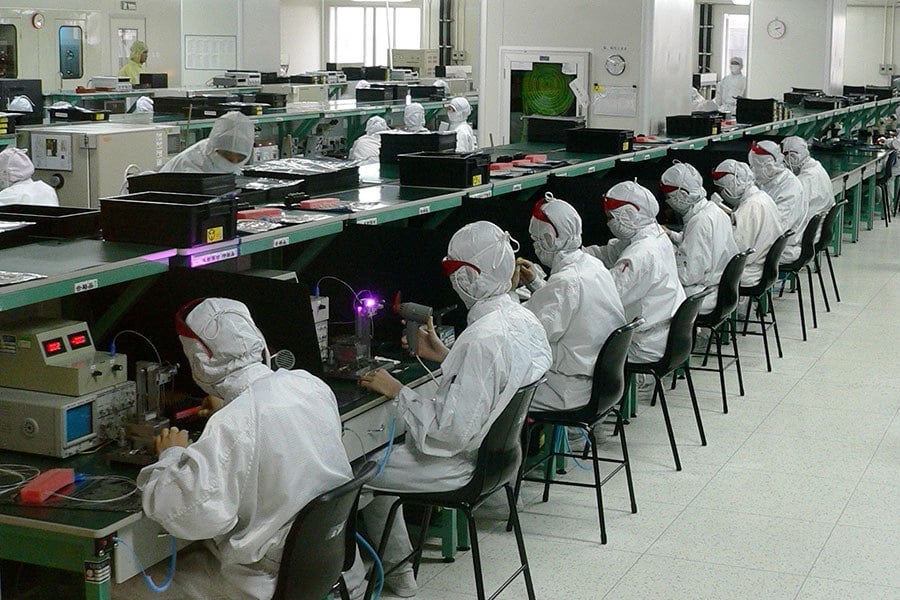5. Apple Has A History Of Reliance On Sweatshop Labor

Inside a Shenzhen, China electronics manufacturer. Image Source: Wikimedia Commons
In a 2010 report about Apple’s factories operating in China, it was found that the factories regularly employed people below the legal working age of 16. That year, counts of Apple’s “core” labor violations—such as involuntary and underage labor—were up from 2009.
Just one year later in 2011, the company’s child labor practices had worsened.
Its employees overseas were forced to work grueling hours—some working 34-hour shifts—with factories operating 24 hours a day, seven days a week, in order to meet the global demand for Apple products. The company also found that fewer factories were compliant with health and safety codes than in 2009, and that fewer suppliers were compliant on working hours than 2009.
When asked in 2010 about the conditions at notorious electronics manufacturer Foxconn—the factory often referred to as a sweatshop where Apple has had some of its products parts assembled, and where, in 2010, 18 attempted suicides resulted in 14 deaths—Jobs denied that it was a sweatshop. “Foxconn is not a sweatshop,” Reuters reported that he said. While claiming to be troubled by the factory deaths, Jobs added, “They’ve got restaurants and swimming pools…For a factory, it’s a pretty nice factory.”
6. The Staff Often Suffered Verbal Abuse

Jobs is all smiles with his iPhone, but working with him was apparently less pleasant. Image Source: Flickr
Steve Jobs had a reputation for being a tyrant in the office. In 2008, Fortune reported that shortly after the disappointing launch of MobileMe, an email system which would provide seamless synchronization features similar to the BlackBerry, Jobs reportedly doled out a half-hour public humiliation of the team responsible, saying,
“Can anyone tell me what MobileMe is supposed to do?” Having received a satisfactory answer, he continued, “So why the fuck doesn’t it do that?”
“You’ve tarnished Apple’s reputation,” he told them. “You should hate each other for having let each other down.”
According to Fortune, Jobs ended his verbal accosting by replacing the head of the group on the spot.





